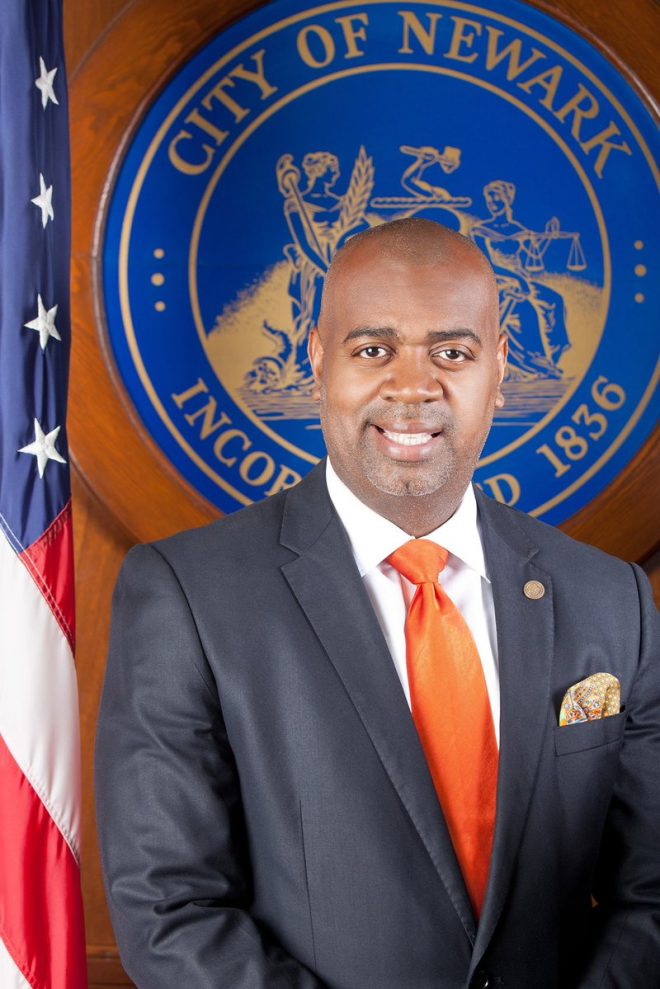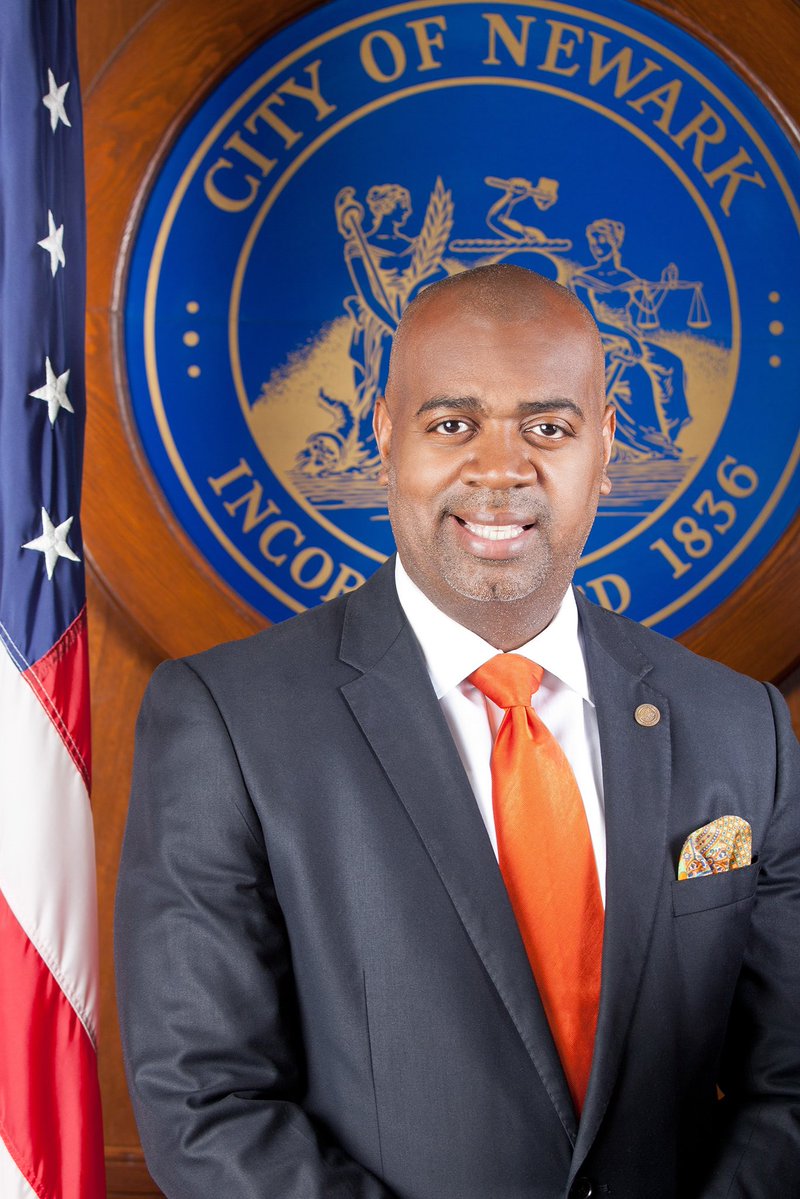
Newark Mayor Ras Baraka Arrested for Storming ICE Facility
In a shocking turn of events, Newark’s Mayor Ras Baraka has been taken into federal custody after allegedly leading a storming of an Immigration and Customs Enforcement (ICE) facility. This incident has sparked significant attention and debate surrounding immigration policies and local governance in the United States.
The Incident
Reports indicate that Mayor Baraka, a prominent figure in Newark’s political landscape, was arrested for his involvement in a protest that escalated into a breach of the ICE facility. Eyewitnesses described a tense scene as demonstrators rallied against the federal agency’s immigration enforcement practices. The protest aimed to draw attention to the treatment of undocumented immigrants and the impact of ICE operations on local communities.
The specifics of the protest and the circumstances leading to Baraka’s arrest remain unclear, but it has been characterized as a significant act of civil disobedience. Activists have long criticized ICE for its controversial practices, and Baraka’s actions have brought national attention to the ongoing debate over immigration reform.
Background on Ras Baraka
Ras Baraka has served as the Mayor of Newark since 2014. Known for his advocacy for social justice and community empowerment, Baraka has often positioned himself as a champion for marginalized communities, particularly in relation to issues of race and immigration. His leadership style and policies have polarized opinions, with supporters praising his commitment to progressive values and critics arguing that his approach may overstep legal boundaries.
- YOU MAY ALSO LIKE TO WATCH THIS TRENDING STORY ON YOUTUBE. Waverly Hills Hospital's Horror Story: The Most Haunted Room 502
Baraka’s arrest adds a dramatic chapter to his political career and raises questions about the role of local leaders in opposing federal immigration policies. His actions are likely to resonate with constituents who share his views on the need for reform within the immigration system.
Reactions to the Arrest
The news of Baraka’s arrest has elicited a wide range of responses from both supporters and opponents. Advocates for immigrant rights have hailed the mayor’s actions as courageous and necessary in the fight against what they perceive as unjust immigration enforcement. Many see Baraka as a leader willing to put himself on the line for the rights of vulnerable populations.
Conversely, critics argue that Baraka’s actions could undermine the rule of law and set a dangerous precedent for other local leaders. Some have expressed concern that such confrontations with federal agencies could lead to increased tensions and potential repercussions for local communities.
The Broader Context of Immigration Policy
Baraka’s arrest comes amid a broader national conversation about immigration policy and enforcement practices. The Biden administration has faced pressure from various factions regarding its approach to immigration, with advocates pushing for more humane policies and critics demanding stricter enforcement.
In recent years, protests against ICE and other immigration enforcement agencies have become more frequent, reflecting growing frustration with the status quo. Activists argue that the current immigration system is broken and in need of comprehensive reform that prioritizes human rights and dignity over punitive measures.
Implications for Local Governance
The incident raises important questions about the relationship between local and federal authorities, particularly in the realm of immigration enforcement. Mayors and local officials often find themselves caught between federal policies and the needs of their constituents. Baraka’s decision to engage in direct action against ICE highlights the complexities local leaders face when advocating for their communities.
As cities grapple with the implications of federal immigration policies, the actions of leaders like Baraka could inspire similar movements across the country. Local governance may increasingly involve a willingness to challenge federal authority, especially in areas where residents feel their rights are being infringed upon.
Next Steps for Baraka and Newark
As the legal proceedings surrounding Baraka’s arrest unfold, the impact on Newark’s political landscape remains to be seen. Baraka’s supporters are likely to rally around him, framing the incident as a pivotal moment in the fight for immigrant rights. Conversely, opponents may leverage this situation to question his leadership and effectiveness as mayor.
In the coming weeks, Baraka’s legal team will likely mount a defense, potentially arguing that his actions were motivated by a moral imperative to protect vulnerable members of the community. The outcome of this case could set significant precedents for how local leaders navigate conflicts with federal agencies in the future.
Conclusion
Ras Baraka’s arrest for leading a storming of an ICE facility has ignited a national dialogue about immigration policy, local governance, and civil disobedience. As the situation develops, it underscores the ongoing tension between federal enforcement and local advocacy, particularly in communities deeply affected by immigration issues. The implications of this incident will likely resonate far beyond Newark, influencing the strategies and actions of local leaders across the United States in their pursuit of justice and reform.
For those following the developments surrounding this story, it serves as a crucial reminder of the power of local leadership in shaping the discourse on immigration and civil rights in America.

BREAKING: Newark Mayor Ras Baraka has been put in handcuffs and taken into federal custody for leading a storming of an ICE facility.
Into my veins. FAFO.
pic.twitter.com/AbsGphtcB5— Benny Johnson (@bennyjohnson) May 9, 2025
BREAKING: Newark Mayor Ras Baraka has been put in handcuffs and taken into federal custody for leading a storming of an ICE facility.
In a stunning turn of events that has captured headlines and social media feeds alike, Newark Mayor Ras Baraka has found himself in federal custody. This incident stems from his alleged involvement in leading a storming of an ICE facility, raising eyebrows and igniting discussions across the nation. It’s a situation that has left many wondering about the implications for local governance, immigration policy, and civil disobedience.
Into my veins. FAFO.
The phrase “Into my veins. FAFO.” has become somewhat of a rallying cry for those who resonate with the sentiments behind Baraka’s actions. FAFO, which stands for “F*** Around and Find Out,” speaks to a prevailing attitude among certain activists and citizens who are willing to challenge authority in bold and often confrontational ways. As the news spreads, supporters and opponents alike are weighing in on what this means for the future of Newark and beyond.
The Background of the Incident
To understand the gravity of this situation, we should first look at the backdrop against which these events transpired. The increasing tensions surrounding immigration policies in the U.S. have prompted many local leaders to take a stand against federal enforcement agencies like ICE. Baraka, known for his outspoken advocacy for immigrant rights, has often been a vocal critic of ICE operations, arguing that they create fear and division within communities.
The incident that led to his arrest reportedly involved a large group of protestors who stormed an ICE facility in Newark. They sought to draw attention to what they perceive as injustices against immigrants and to demand changes in immigration policies. The action was described by some as an act of civil disobedience, while others condemned it as reckless and dangerous.
Public Reaction
The public reaction to Baraka’s arrest has been mixed. Supporters argue that he is a hero standing up for the rights of immigrants and challenging an oppressive system. Many have taken to social media to express their support, using hashtags like #FreeBaraka and #ImmigrantRights. On the other hand, critics argue that his actions were irresponsible and could endanger the safety of both the protestors and the community.
Social media has played a pivotal role in shaping this narrative. Tweets, like the one from Benny Johnson that announced the news, have gone viral, amplifying the dialogue around this incident. The rapid spread of information—both supportive and critical—highlights how modern activism often plays out in the digital space, where opinions can shift in an instant.
The Legal Implications
Baraka’s arrest raises important legal questions about the boundaries of protest and civil disobedience. Historically, many social movements have relied on acts of civil disobedience to draw attention to injustices. However, the legality of such actions often comes into question, especially when they involve storming government facilities. Legal experts suggest that Baraka could face serious charges, depending on the extent of his involvement and the actions taken during the protest.
Legal ramifications aside, this incident may set a precedent for how local leaders engage with federal agencies and how far they are willing to go in advocating for their constituents. As immigration policies continue to evolve, the role of mayors and local officials may become increasingly contentious.
Implications for Local Governance
Baraka’s actions could have a significant impact on local governance in Newark and similar cities across the country. His leadership style, characterized by bold statements and actions, has often inspired others. Whether or not this incident will galvanize other local leaders to take similar stands remains to be seen. However, it undeniably puts a spotlight on the delicate balance between advocating for constituents and adhering to federal laws.
As cities grapple with the consequences of federal immigration policies, the role of mayors like Baraka will likely become more complex. They must navigate the demands of their constituents while also considering the legal and political repercussions of their actions. This incident has opened up a broader conversation about the responsibilities of local leaders in times of crisis.
Future of Immigration Policies
This situation also raises questions about the future of immigration policies in the U.S. The Biden administration has made some changes to immigration enforcement, but many activists argue that more needs to be done. Baraka’s arrest could serve as a catalyst for renewed discussions about comprehensive immigration reform, as well as the treatment of immigrants in the U.S.
Activists are using this moment to call for a re-evaluation of how immigrant communities are treated, not only by federal agencies but also at the local level. The spotlight on Baraka’s actions may inspire further protests and calls for change, particularly in cities with large immigrant populations.
The Role of Social Media in Activism
In today’s digital age, social media has become an essential tool for activism. The rapid spread of information, as seen with Baraka’s arrest, illustrates how online platforms can amplify voices and mobilize support. The dialogue surrounding this incident has been heavily influenced by social media, with various narratives emerging in real-time.
Activists are increasingly leveraging platforms like Twitter to organize events, share information, and rally support. This incident serves as a case study for how social media can shape public perception and influence the outcome of social movements. The viral nature of tweets and posts ensures that these discussions remain in the public eye, keeping pressure on local and federal governments to respond.
The Importance of Community Engagement
Baraka’s actions highlight the importance of community engagement in addressing local issues. His leadership style emphasizes the need for local leaders to be in tune with the needs and concerns of their constituents. By taking a stand against ICE, Baraka has positioned himself as a champion for immigrant rights, a move that resonates with many residents in Newark.
As communities continue to navigate the complexities of immigration policies, the involvement of local leaders like Baraka will be crucial. Engaging with constituents and advocating for their rights fosters a sense of solidarity and empowerment. This scenario reminds us that local governance is not just about policy-making; it’s also about being a voice for the people.
Conclusion: A Moment of Reflection
Ras Baraka’s arrest is more than just a headline; it’s a moment of reflection for communities across the U.S. It urges us to consider the implications of civil disobedience, the responsibilities of local leaders, and the future of immigration policy. As discussions continue and the legal process unfolds, one thing is clear: the fight for justice and equity is far from over. This incident may be a flashpoint for change, urging activists and citizens alike to reflect on what it means to stand up for what they believe in.
Breaking News, Cause of death, Obituary, Today
